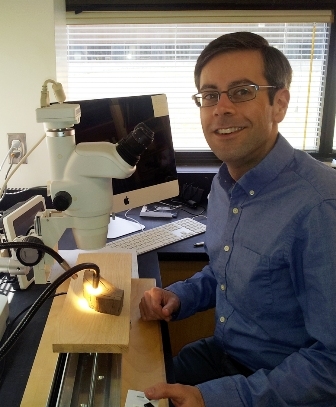US research grant for NU climate change expert

Dr. Adam Csank, an Assistant Professor in Nipissing’s Geography Department, is the co-Principal Investigator on a team that has recently been awarded a $633,200 grant from the US National Science Foundation for their research project, titled Detection of long-term variability in storm tracks using seasonally resolved tree-ring isotope records: Implications for hydroclimatic change in the U.S. Pacific Northwest.
The project is led by Dr. Erika Wise at the University of North Carolina, Chapel Hill and also includes Dr. Stephanie McAfee of the University of Alaska, Fairbanks, who is also an Adjunct Professor of Geography at Nipissing University.
The project aims to obtain a more complete understanding of the physical processes influencing North American climate on long time scales, particularly past changes in storm-track trajectory in the Pacific Northwest. This will lead to a better understanding of water resources in the Columbia River basin, because the trajectory of incoming storms from the Pacific Ocean is a key influence on drought and wet periods in the western United States. Decadal shifts in the prevailing position of the jet stream has been identified as a key feature in hydroclimatic variability over the instrumental period and may have been responsible for past North American megadroughts.
The goals of this project are to reconstruct historic storm track trajectories and assess drought patterns on a seasonal scale over the past several centuries by using tree ring records from the Pacific Northwest. Given the projected changes in storm track and in the seasonality of precipitation under climate change scenarios, explaining the past limits of this system will be important for assessing the potential impacts of future trends.?
